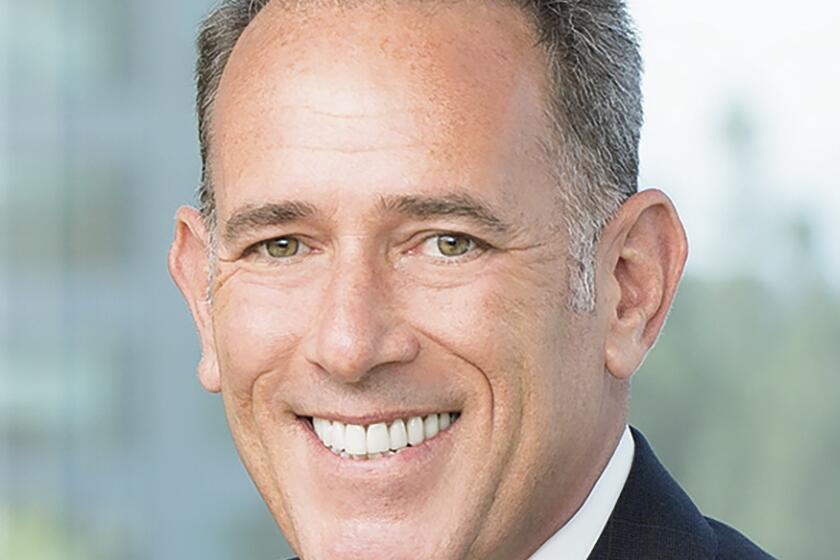Steven B. Weisburd Shares Surging Class Action Statistics
- Share via
This Conversation with the Expert is produced by the L.A. Times B2B Publishing team in conjunction with Carlton Fields.
After the many unprecedented operational changes that businesses in every sector have had to make over the last few years, a whole new landscape has emerged in terms of consumer litigation issues for businesses. This has left even the most seasoned C-suiters and in-house counsel professionals struggling to find answers to crucial questions. What should management be focusing on in terms of new standards, strategies and protocols, and how can class action litigation be most effectively managed?
To explore these issues and concerns as well as other topics pertaining to the world of corporate defense strategies, we turned to leading expert Steven B. Weisburd of Carlton Fields for his thoughts about the most important “need to know” insights and to get his assessments regarding the current state of class action litigation, dispositive motion strategies, arbitration trends and more.
Q: What notable or surprising insights were gleaned from Carlton Fields’ annual class action survey for 2023?
Perhaps unsurprisingly, companies’ spending on class action defense increased for the eighth consecutive year, reaching an unprecedented $3.5 billion in 2022. With the rise in PAGA class actions, we have seen labor and employment class actions account for about one-third of all class action spending. But this past year also saw an uptick in consumer class action litigation, which had declined somewhat in the past few years. Also reported by corporate in-house counsel was growth in putative class actions that are both costly to defend and either baseless or dubious on their face. Companies are increasingly concerned that courts are becoming more lenient in allowing baseless class action complaints to proceed, which invariably pressures companies to settle given the sheer in terrorem effect of class action litigation. Although classwide settlements have decreased and faced increasing judicial scrutiny in recent years, there was a significant increase in settlements of putative class actions on an individual basis this year.
Q: Are there traditional motion practice strategies that require rethinking or reconceptualization in your view?
One procedural tool I wish defense counsel would be wary to invoke, except in clear-cut cases, is the motion to strike class allegations. In most cases, such motions are ill-advised. The standard on motions to strike class allegations literally calls upon the court to decide if there is any conceivable way, based on any reasonably possible factual record, that the court might entertain certifying the class. From the defendant’s perspective, that is a terrible vantage. Undoubtedly, the substantial costs associated with litigating the case through class discovery – and then putting plaintiffs and their counsel to the task of satisfying their weighty burden of proving that class certification is warranted – make an early motion to strike class allegations attractive from an economic perspective. But, I have seen this tactic backfire far more often than it succeeds.
Q: Have you noticed any changes in trends regarding the use of mandatory arbitration clauses with class action waivers as a strategy to address consumer class actions?
For decades, defense counsels have urged their corporate clients to use mandatory arbitration agreements and class action waivers as a means to combat the threat of consumer class action lawsuits. However, clients are increasingly reconsidering this strategy for several reasons. First, there is no appellate review in arbitration, which makes it an especially risky enterprise if there is a possibility of classwide arbitration. Despite legal rules in cases like Lamps Plus v. Varela, 139 S. Ct. 1407 (2019), that should prevent any company from being compelled into class arbitration without the company’s explicit consent, some arbitrators and arbitration tribunals have shown an alarming willingness to entertain arguments of implied consent, resulting in companies facing class arbitration against their will. Second, even if class arbitration can be defeated, there is still a risk of mass arbitration and the filing of thousands of individual arbitrations. This can impose significant procedural costs and confusion without the potential benefits of multidistrict litigation or judicial coordination by complex litigation courts. For example, in Abernathy v. DoorDash, Inc., 439 F. Supp. 3d 1062 (2020), over 6,000 couriers filed individual arbitration demands, resulting in approximately $12 million in administrative fees. When the company refused to pay these fees, the American Arbitration Association closed the cases, and the delivery drivers sought to compel arbitration, which was granted. Some organizations, like New Era ADR, have established rules for mass arbitration in an effort to address these concerns and implement reasonable procedures and cost structures. However, in the Central District of California case in Heckman v. Live Nation Entertainment, Inc., 2023 WL 5505999 (Aug. 10, 2023), many of these procedures were rejected, and the decision is now under appeal to the Ninth Circuit.
Q: What are some of the biggest challenges that major corporate defendants face in consumer class action litigation, and are there any significant new legal developments for practitioners in this area?
One major challenge remains how best to convince courts to dismiss meritless consumer class action cases during the pleading stage before the sheer cost of class certification discovery and litigation puts heavy and unfair settlement pressure on the company. Some defendants have prevailed by arguing that the alleged deception would not mislead a reasonable consumer or by challenging whether the plaintiffs actually relied on the alleged misstatement. The decision in McGinty v. Proctor & Gamble Company, 69 F.4th 1093 (9th Cir. 2023), from the Ninth Circuit, gives more bite to challenges based on the reasonable consumer standard if the defendant’s challenged marketing practice includes a front label that is at least “ambiguous” and the ambiguity can be resolved by reference to the back label, thereby curing the potential for deception. Dubious consumer class actions often do more harm than good for consumers. They often lead to increased product prices while lining the pockets of only a few in the plaintiffs’ bar, especially when corporate defendants succumb to the immense pressure to settle weak cases aggregated through the class action procedural device.
Known as the “case killer” for his success in securing defense verdicts, judgments, dismissals, or favorable settlements, trial and appellate lawyer Steven B.




